We have a partnership with Charlotte’s Quest Nature Center, located in Pine Valley Park, Manchester. Each graduating senior picks a native tree that we, as a community, help them plant.
2025 Graduates
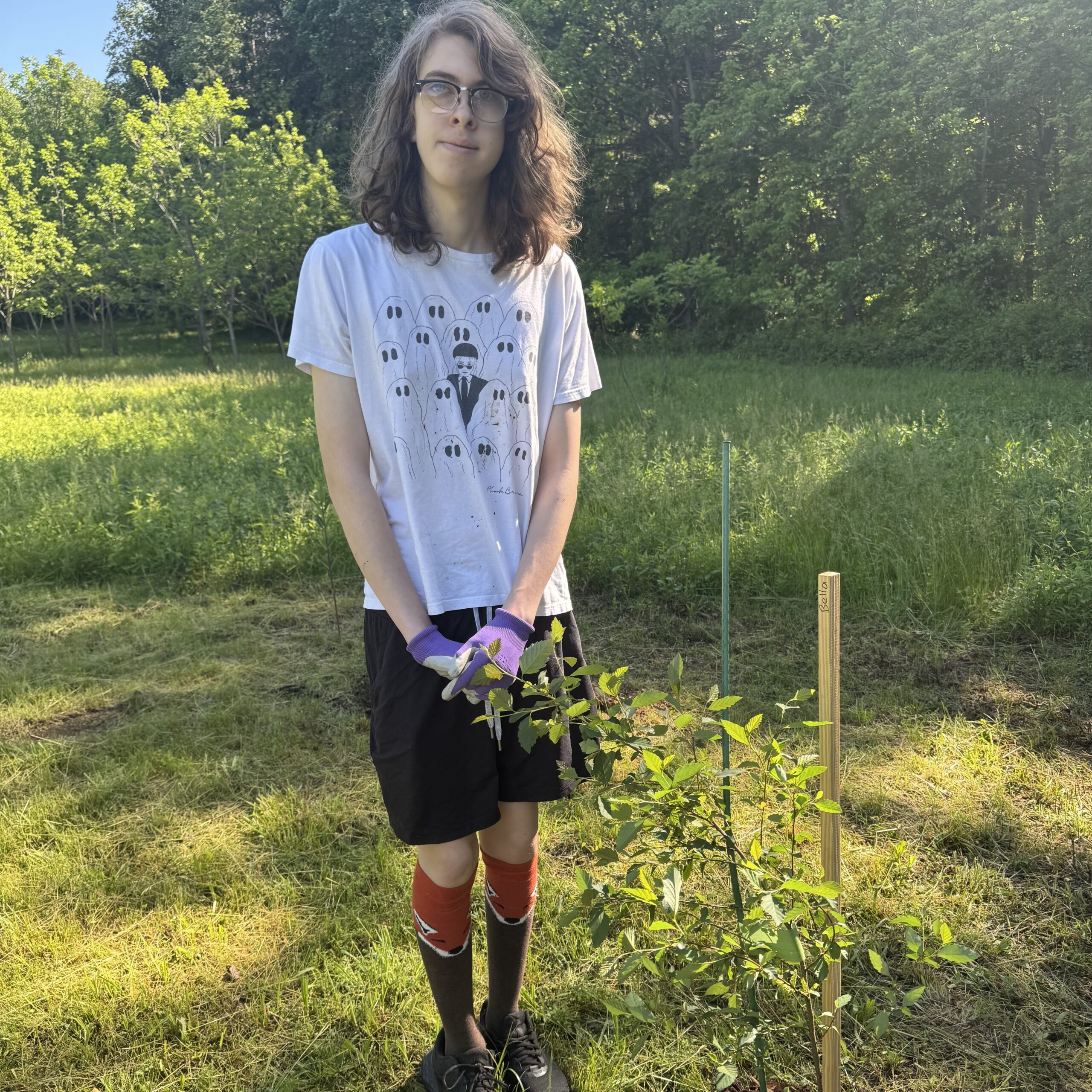
Bella
River Birch (Betula nigra) is a keystone species. It supports over 300 varieties of butterflies.
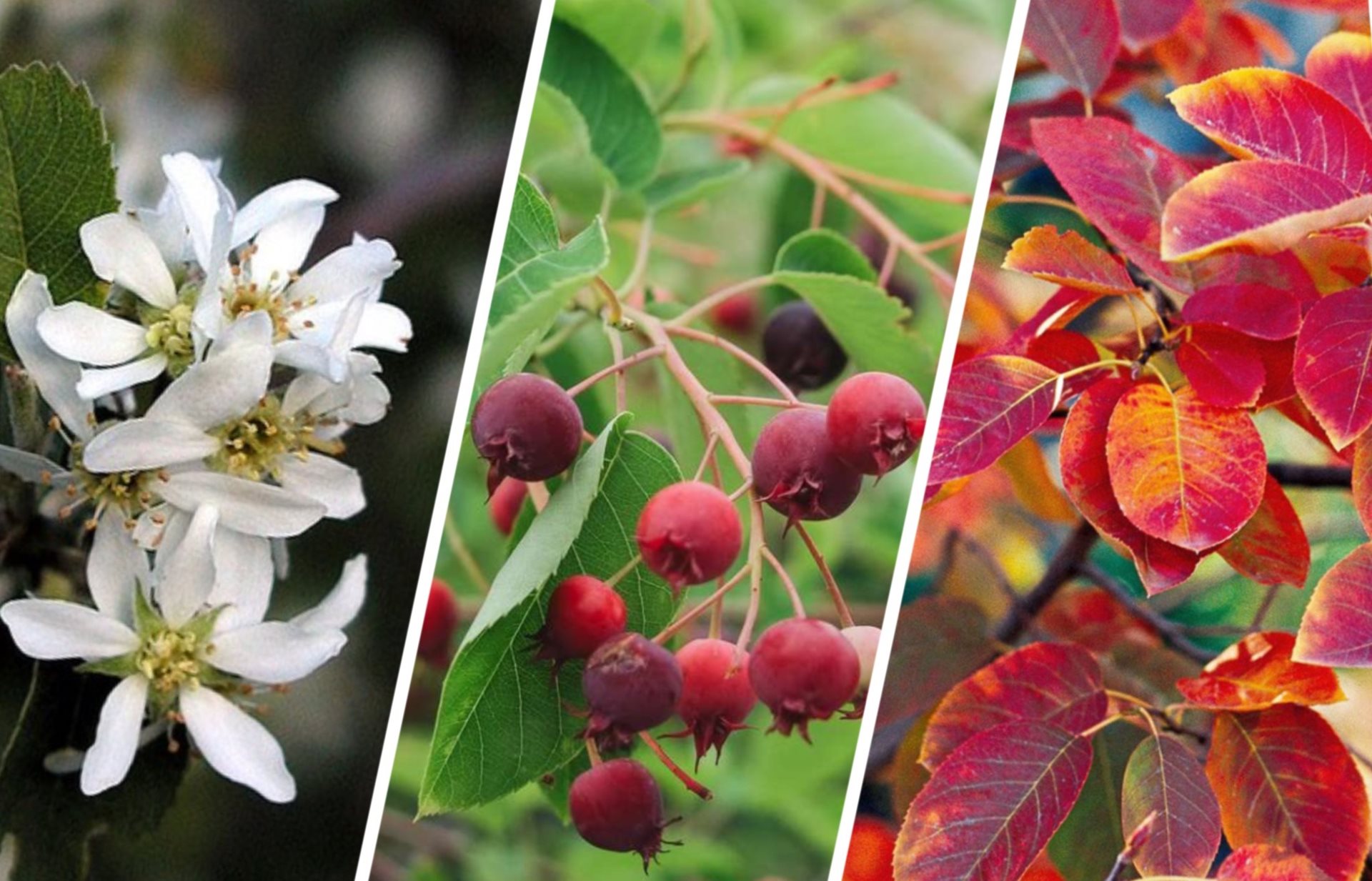
Florance
Serviceberry (Amelanchier canadensis) supports more than 100 butterflies, including the Eastern Swallowtail.
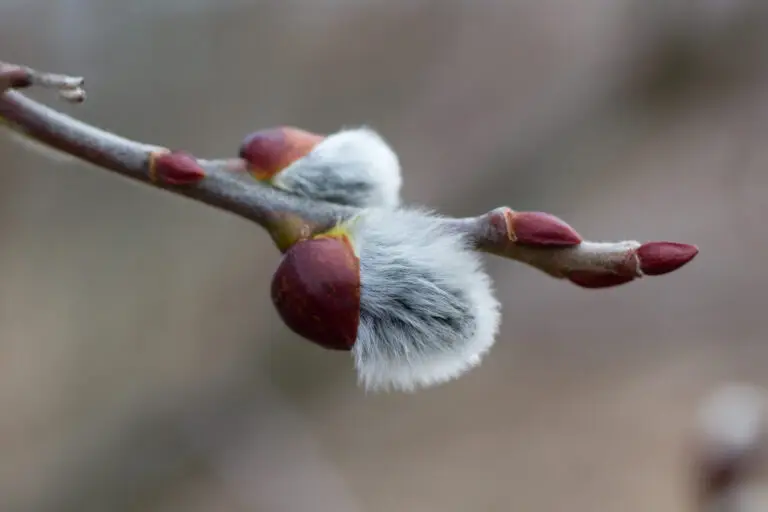
Lillianna
Willow (Salix discolor) supports 21 local butterflies, 10 moths, and hummingbirds.
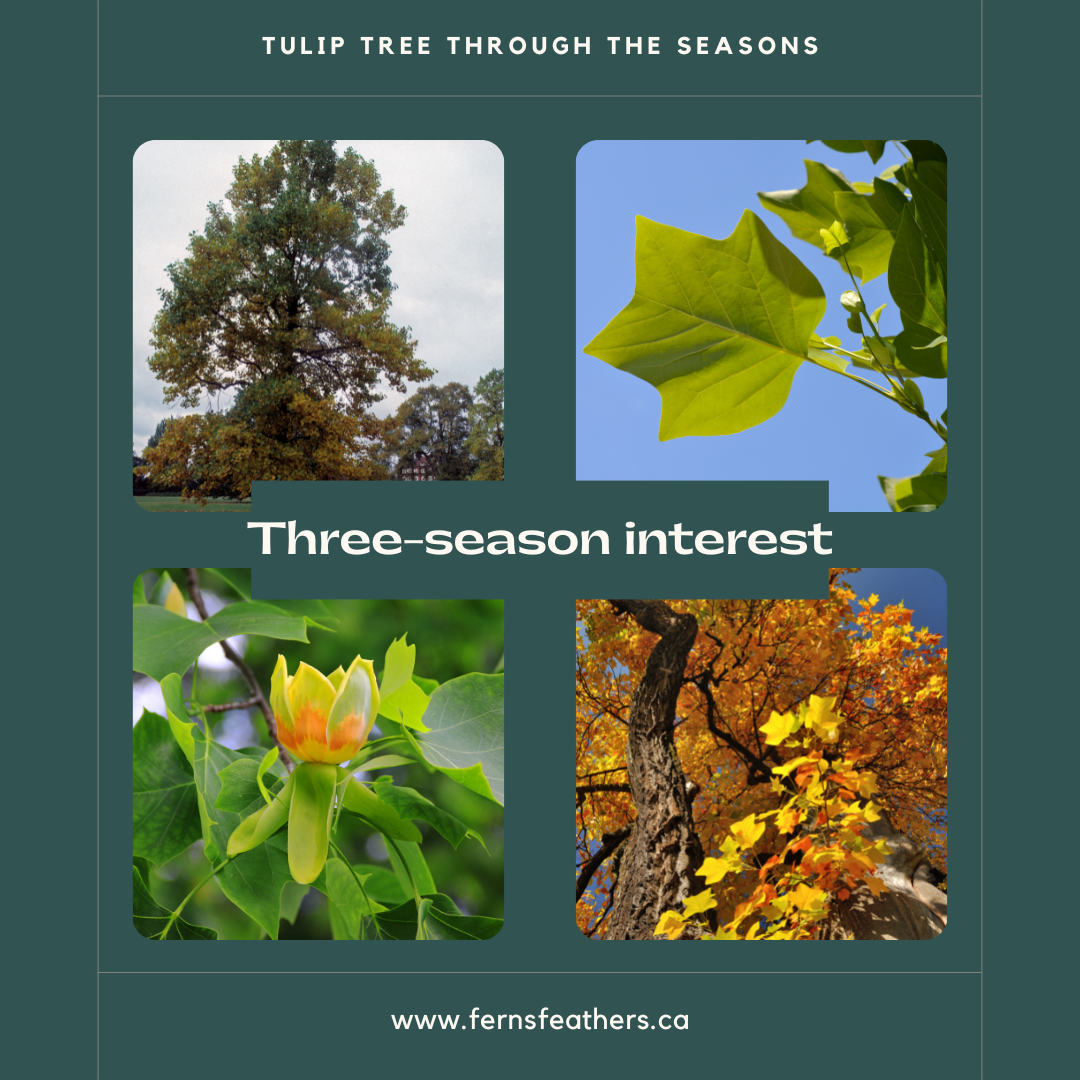
Mandy
Tulip Poplar’s (Liriodendron tulipifera) early spring flowers are loved by native bees and migrating ruby-throated hummingbirds.
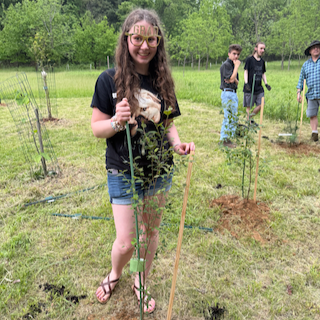
Piper
River Birch (Betula nigra)’s exfoliating bark provides shelter to overwintering butterflies. Birds eat their seeds & catkins.
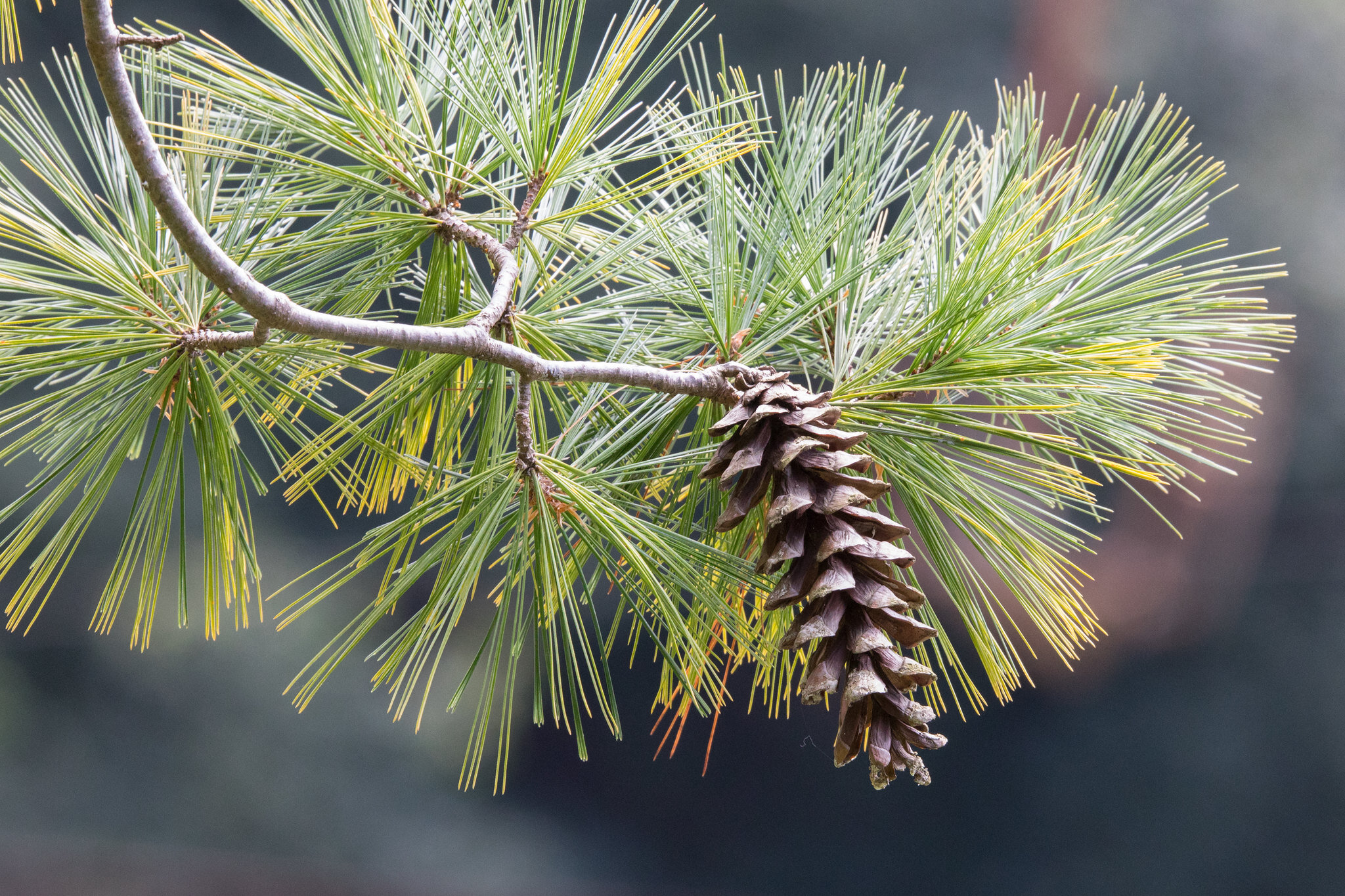
Siôn
Pine (Pinus strobus) can live for over 400 years. It provides food and shelter for butterflies, deer, and rabbits.

Ulysses
Tulip Poplar (Liriodendron tulipifera) benefits 21 butterflies, in additon to sequestering a lot of carbon.
2024 Graduates
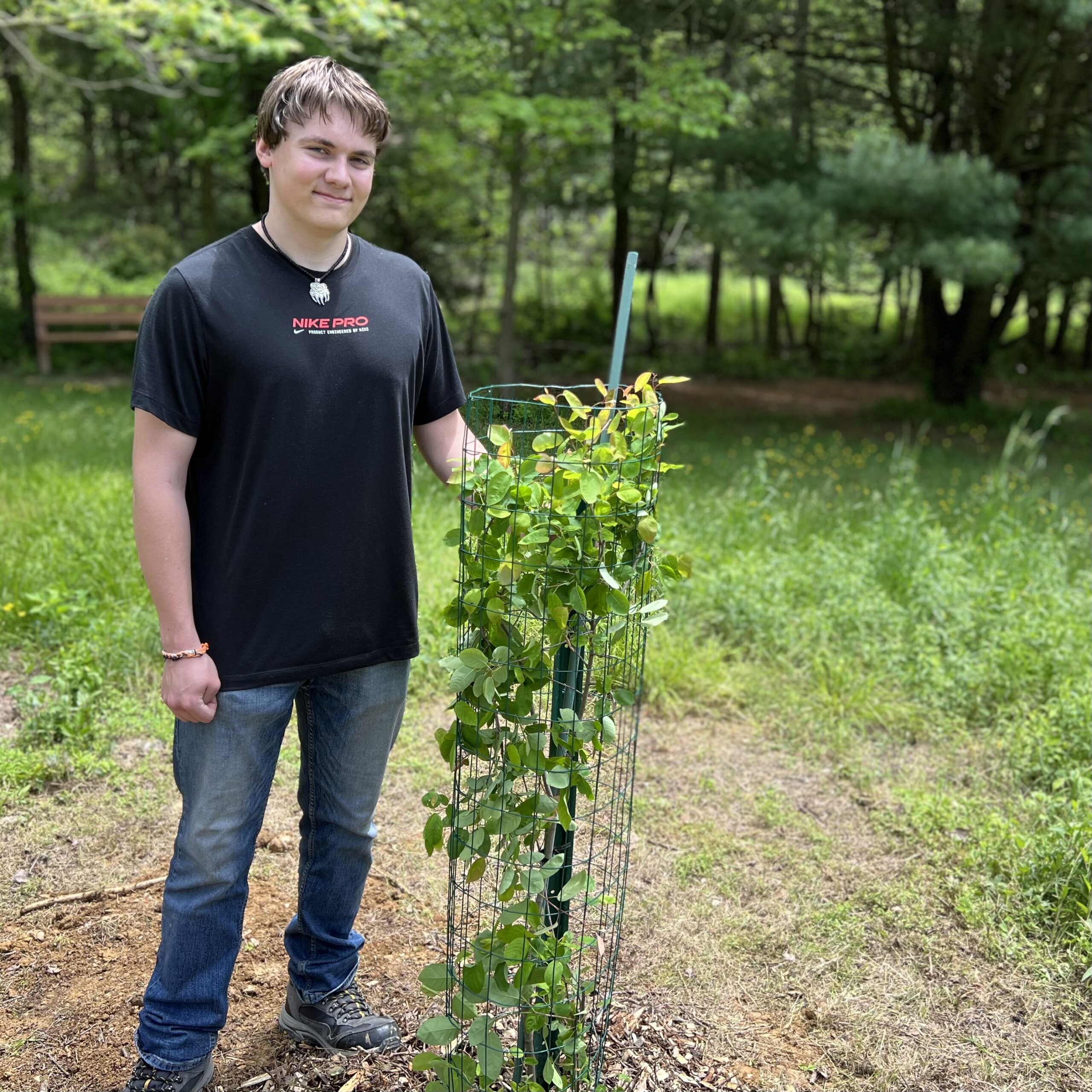
Duke
Serviceberry (Amelanchier laevis) is a keystone species.
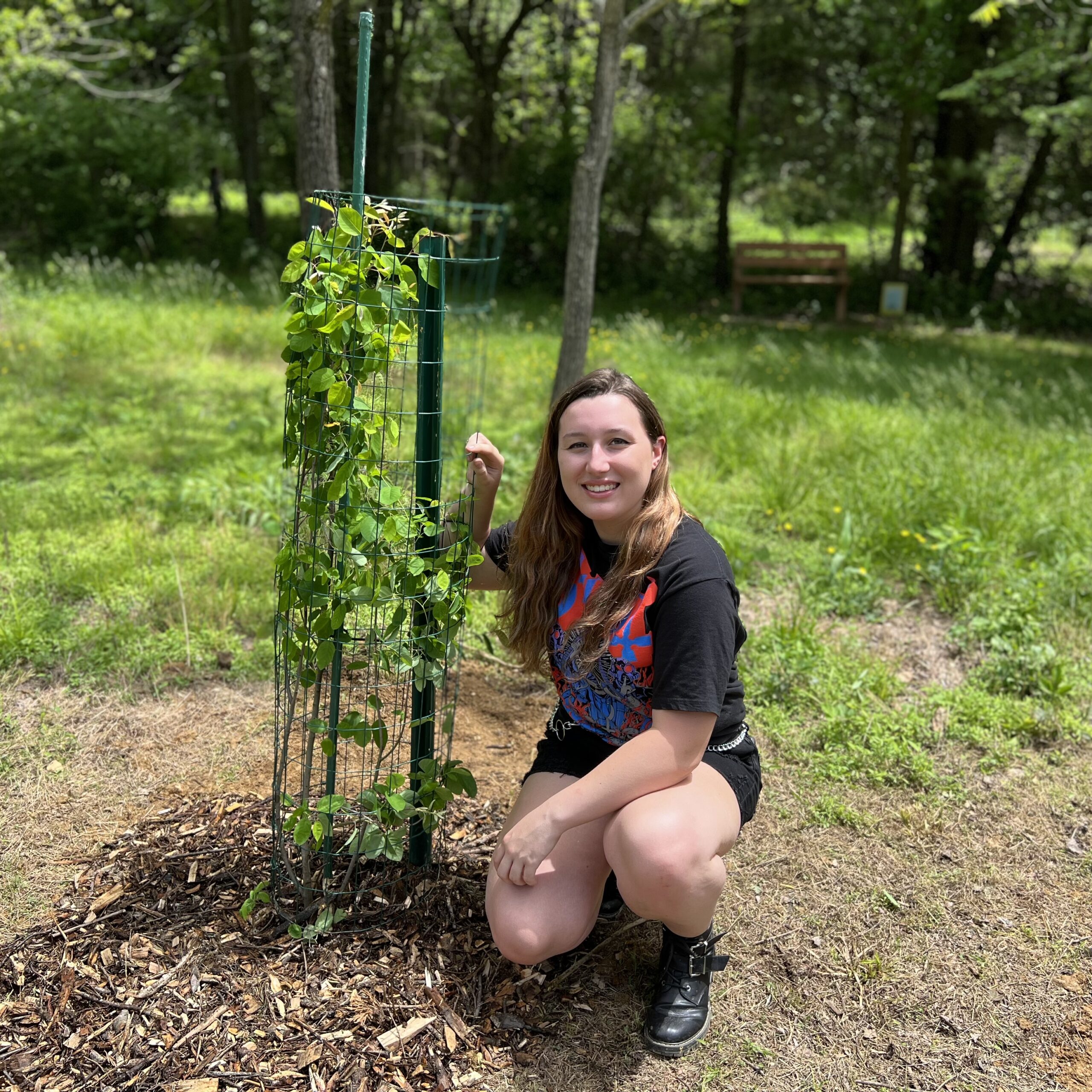
Keira
Serviceberry (Amelanchier laevis) supports 124 butterflies.
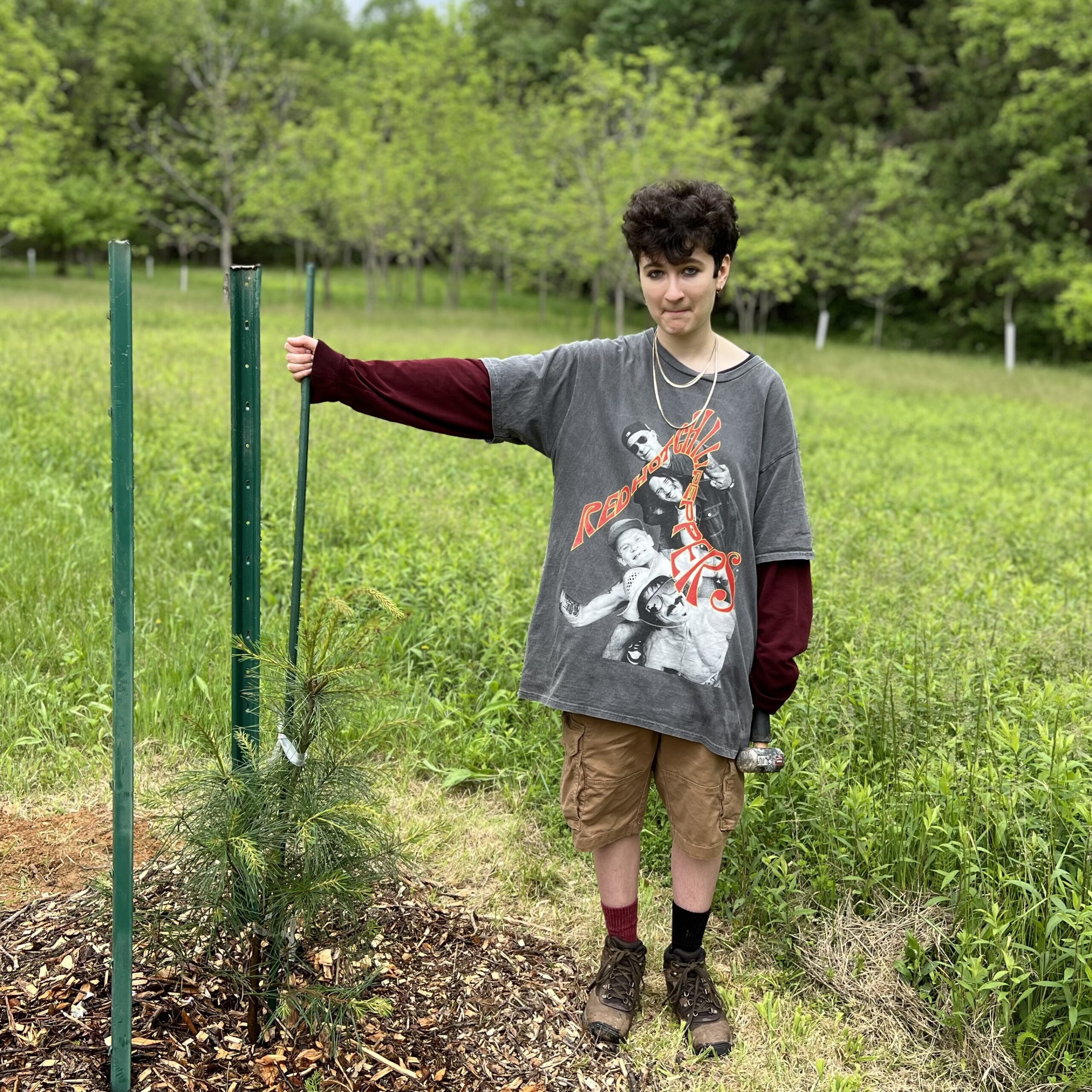
Link
Pine (Pinus strobus) helps 237 species of butterflies. It is a pioneer species and it is highly efficient in carbon sequestration.
2023 Graduates
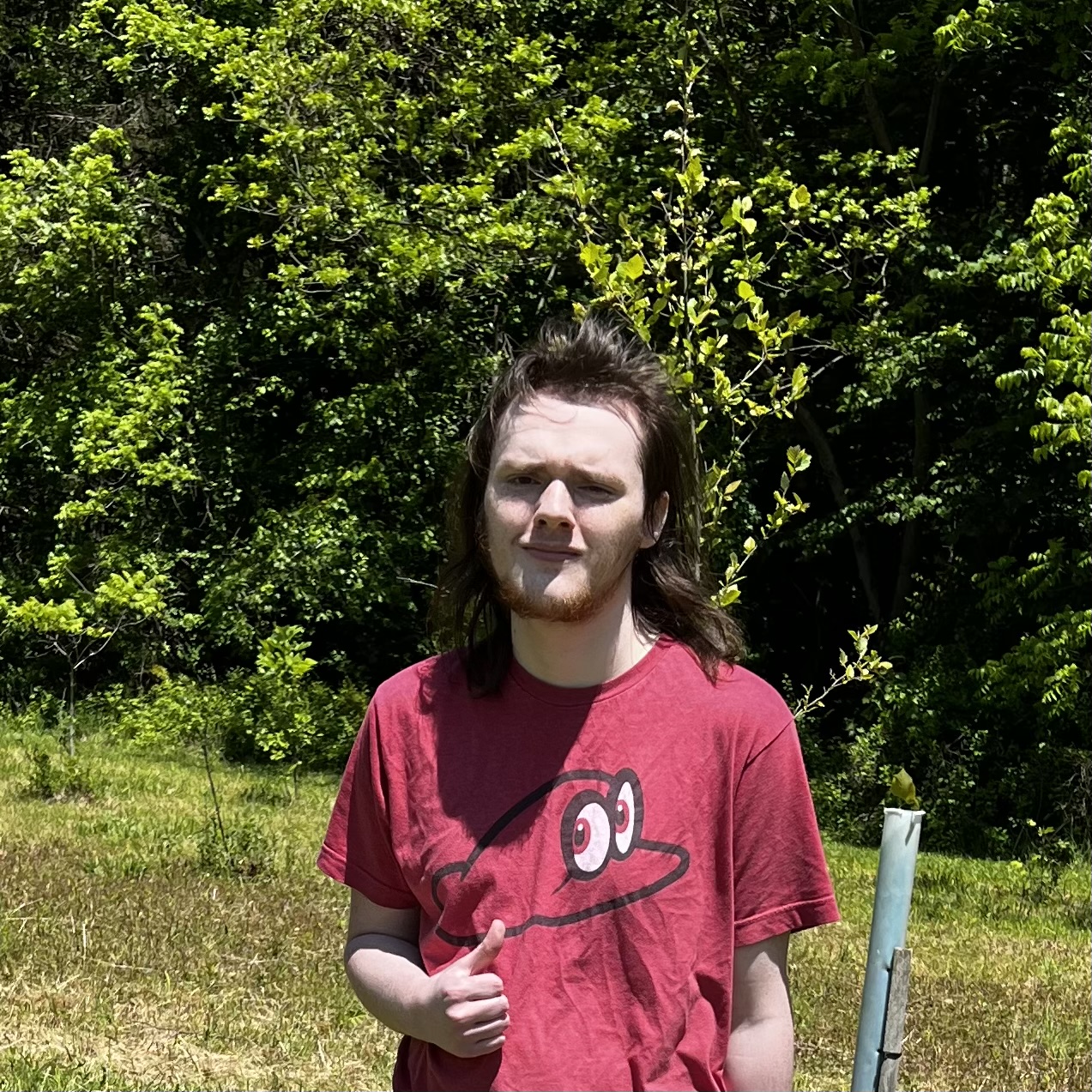
Cam
Serviceberry (Amelanchier laevis) supports 124 butterflies. Its early blooms provide valuable nectar for early spring pollinators.
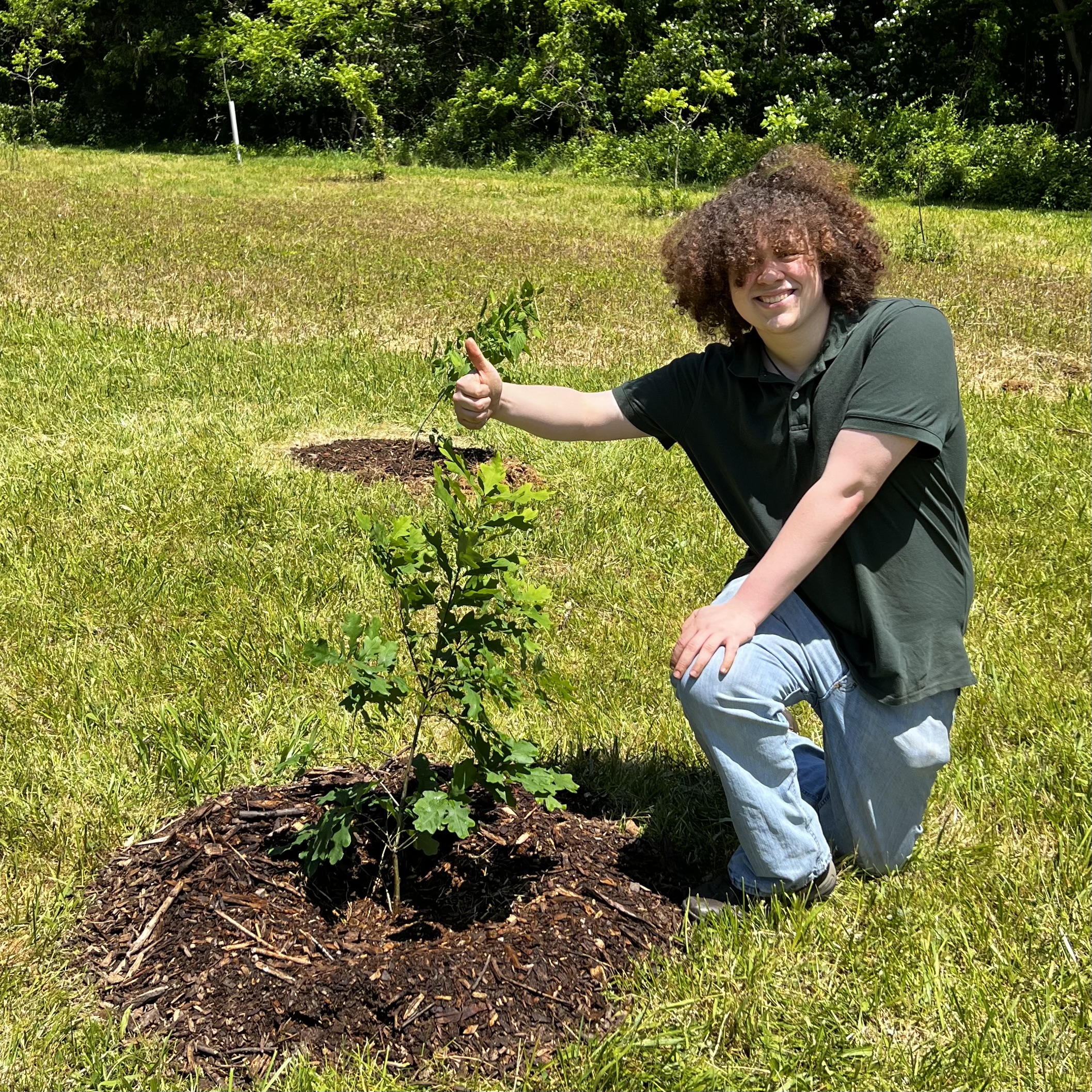
Dryden
White Oak (Quercus alba) supports 537 species of butterflies.
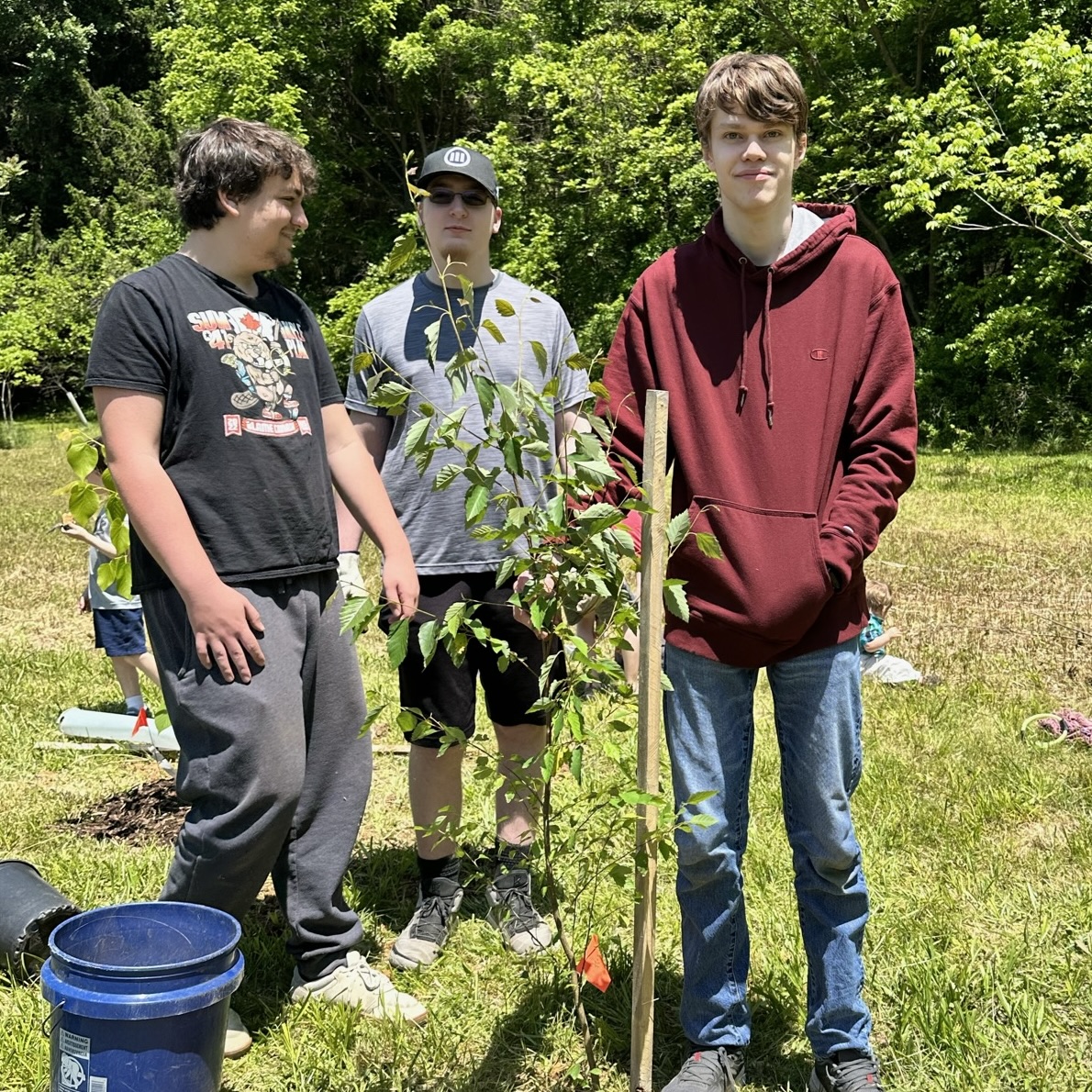
Max
River Birch (Betula nigra) supports 327 species of butterflies.
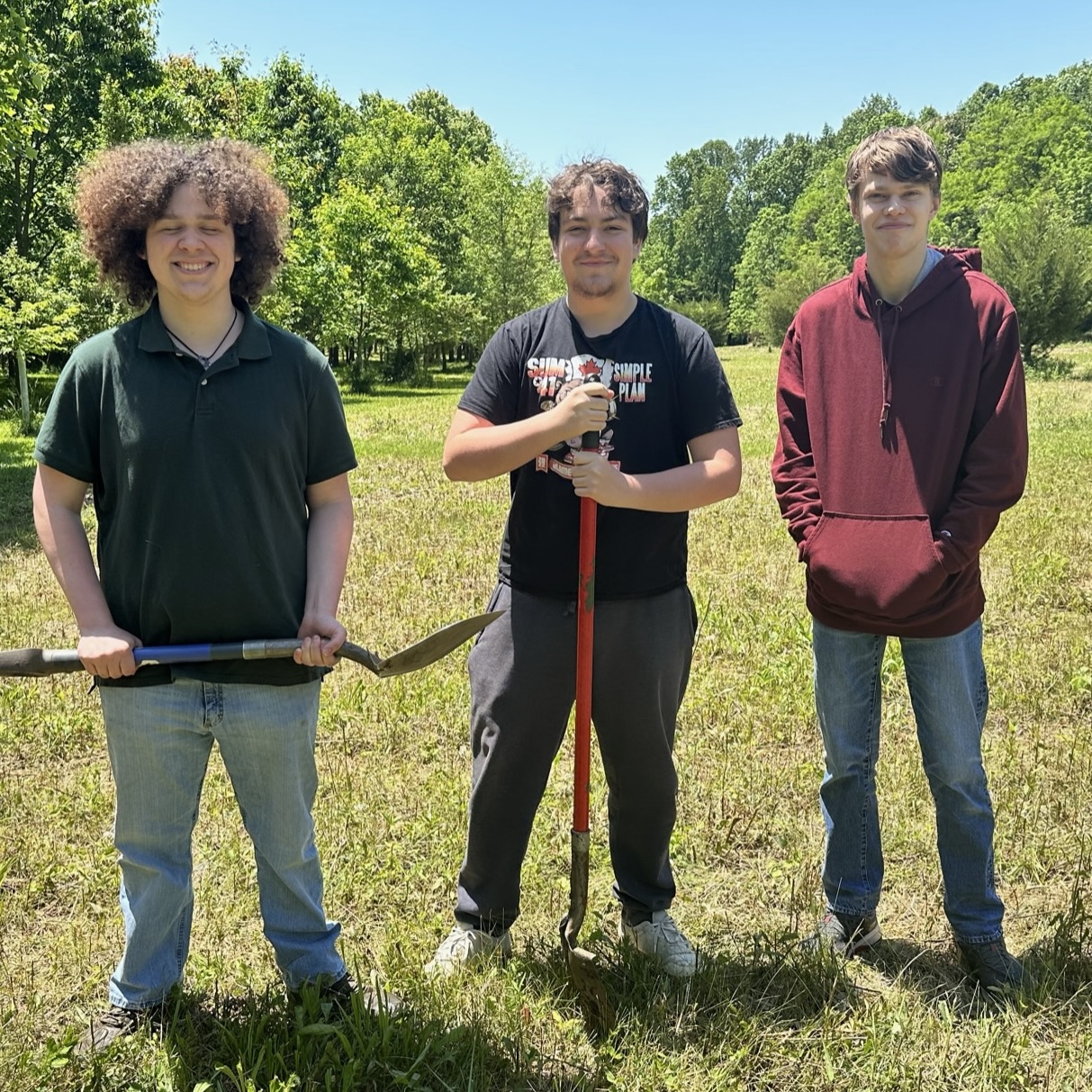
Noah
American Linden (Tilia americana) supports 151 species of butterflies.
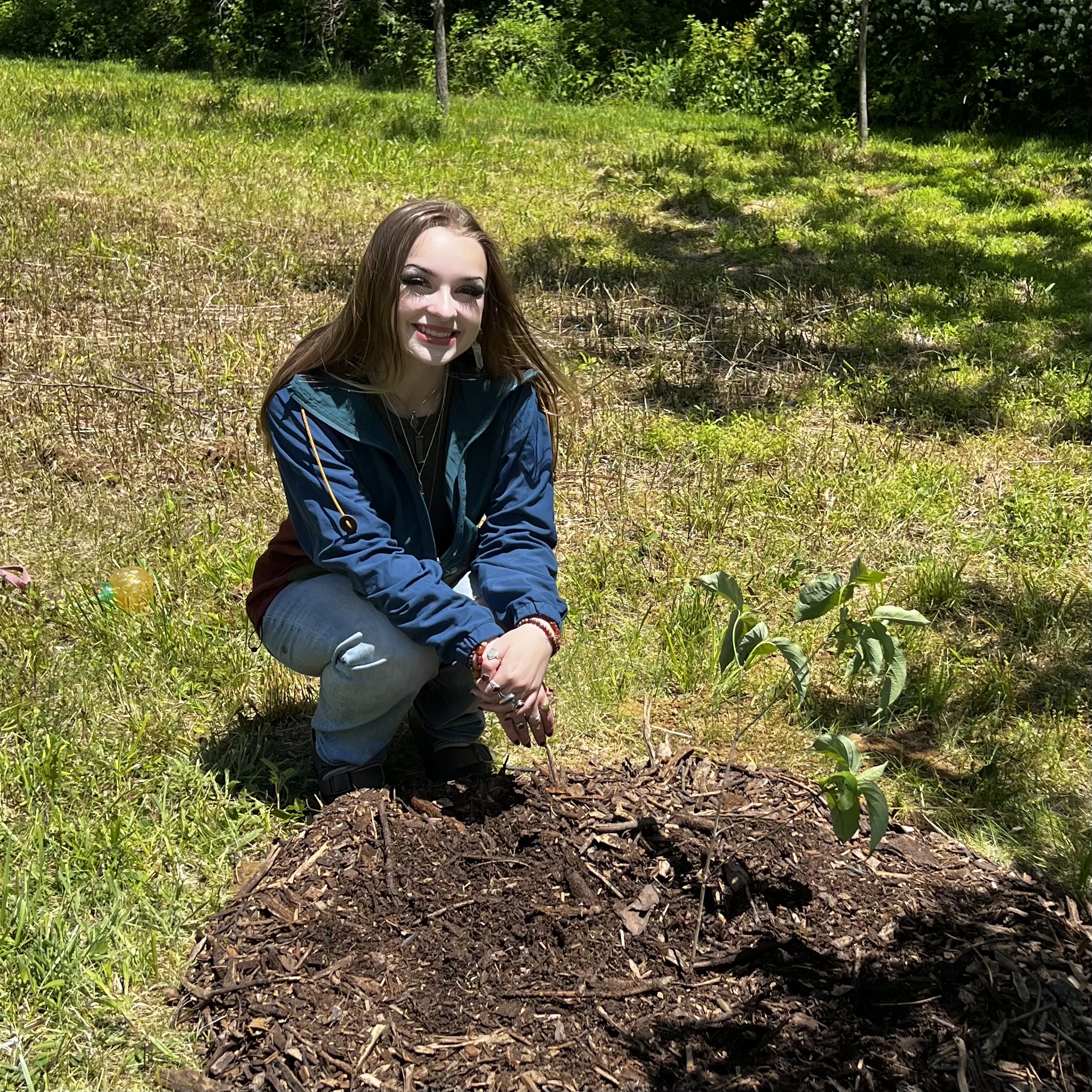
Reed
Florida Dogwood (Cornus florida) supports dozens of species of butterflies.

Tom
Black Cherry (Prunus serotina) supports 450 species of butterflies.
2021 Graduate (During the COVID years)
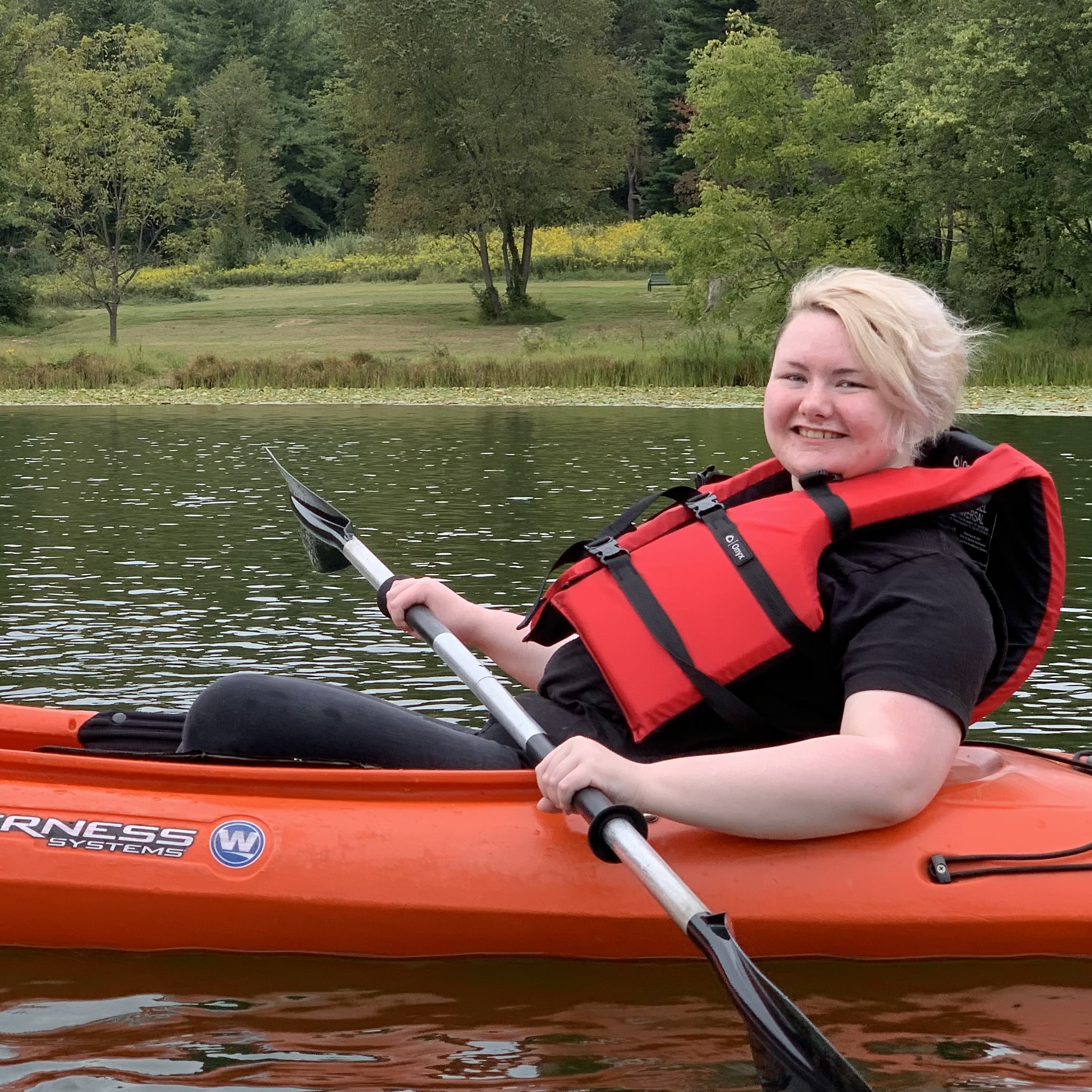
Sophie
Hackberry (Celtis occidentalis) supports 43 species of butterflies. Graduated from Moore College of Art & Design with a BA in Animation & Gaming Design